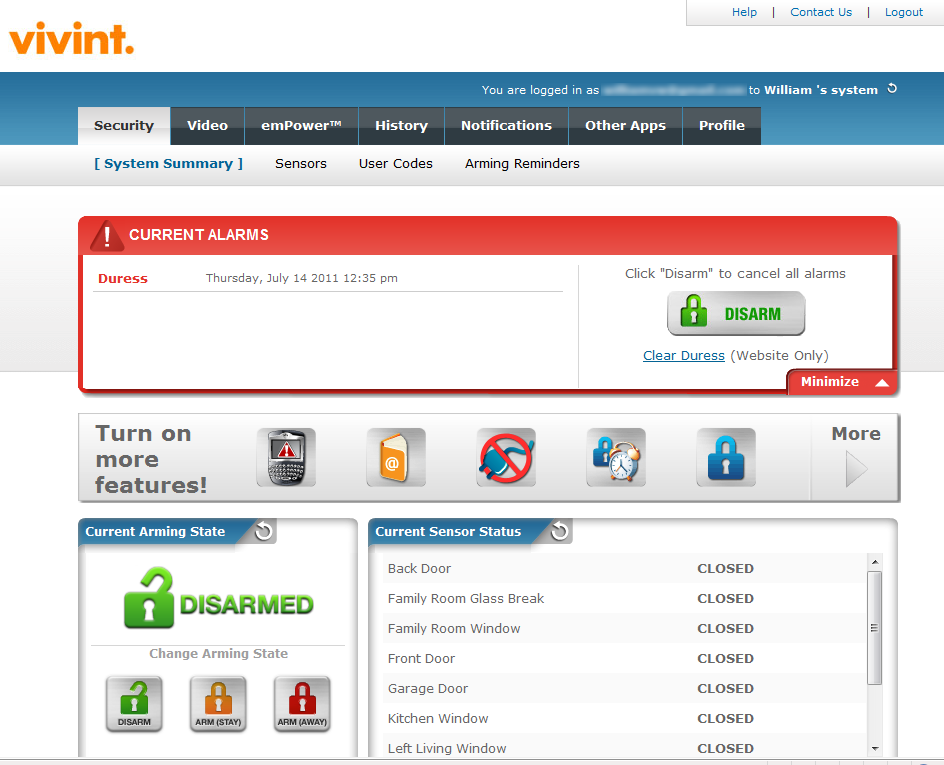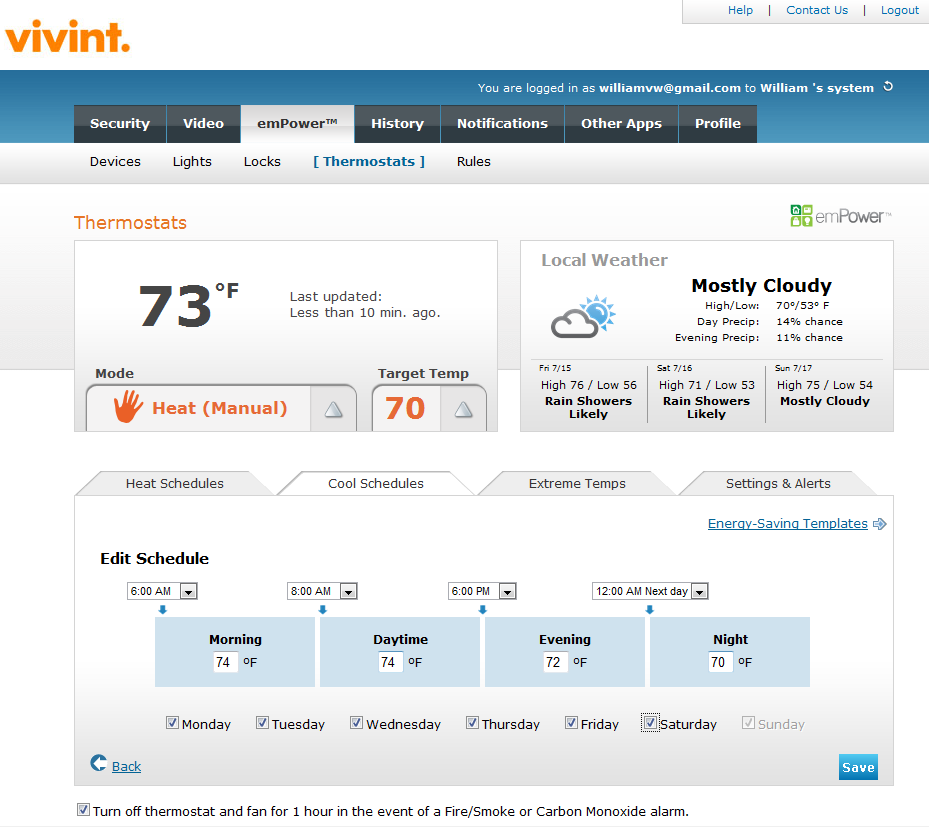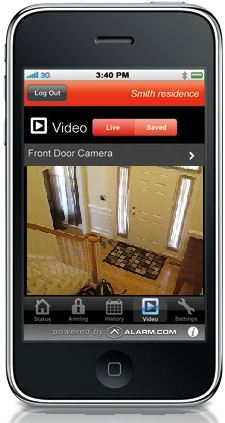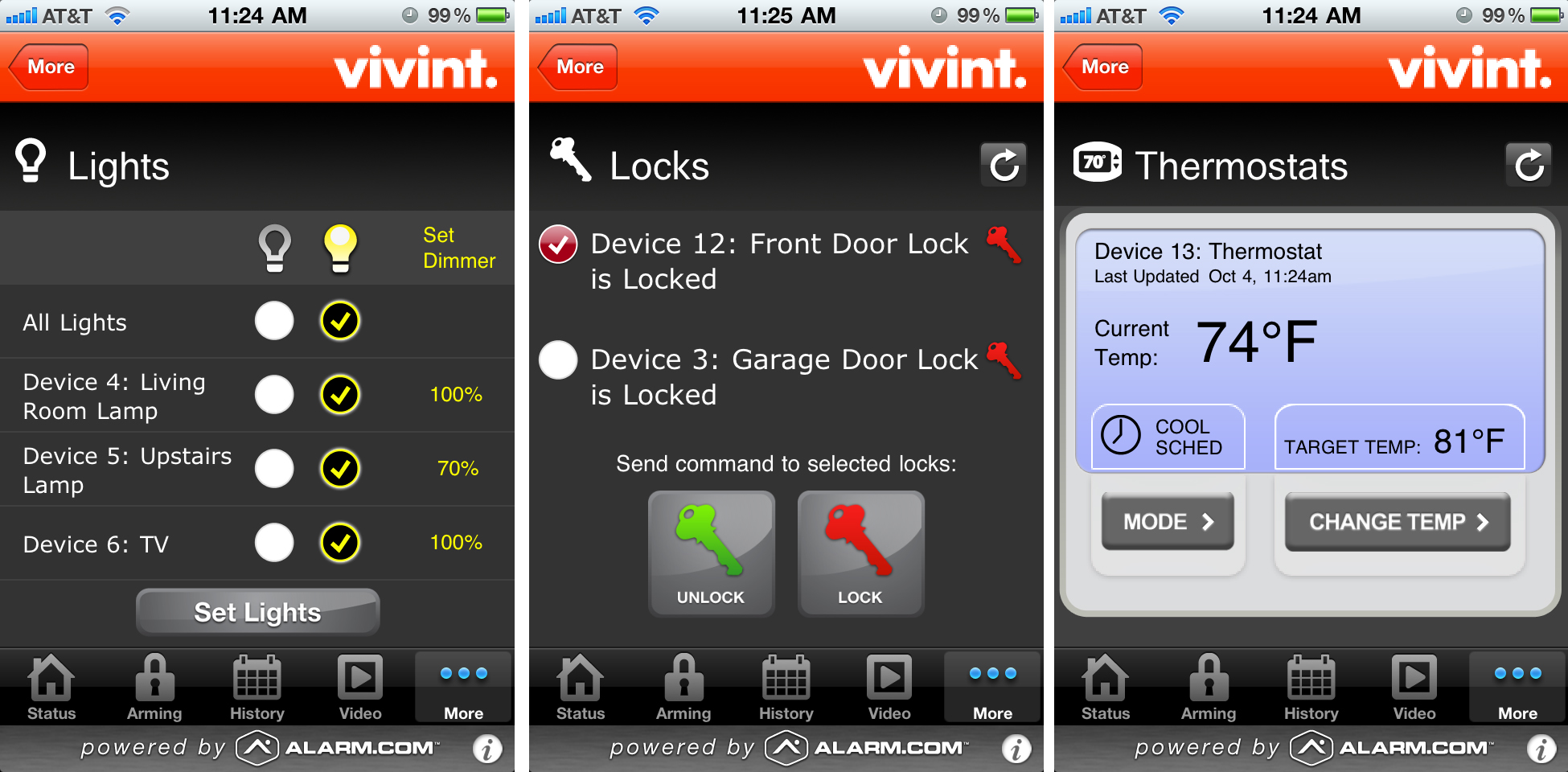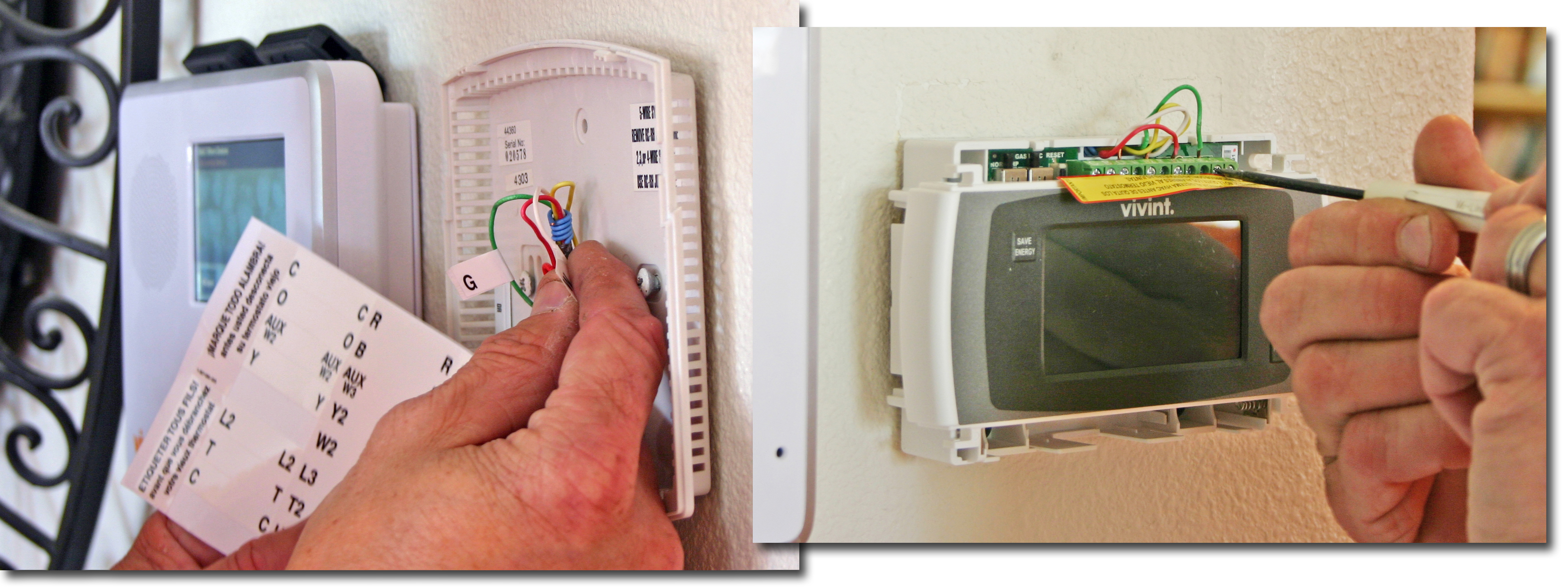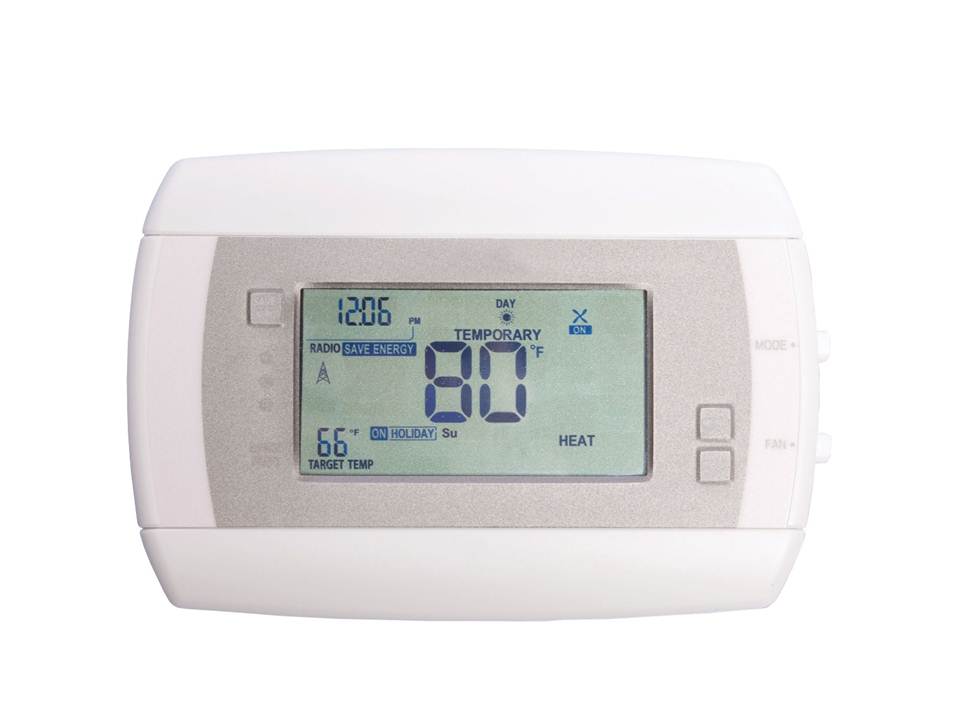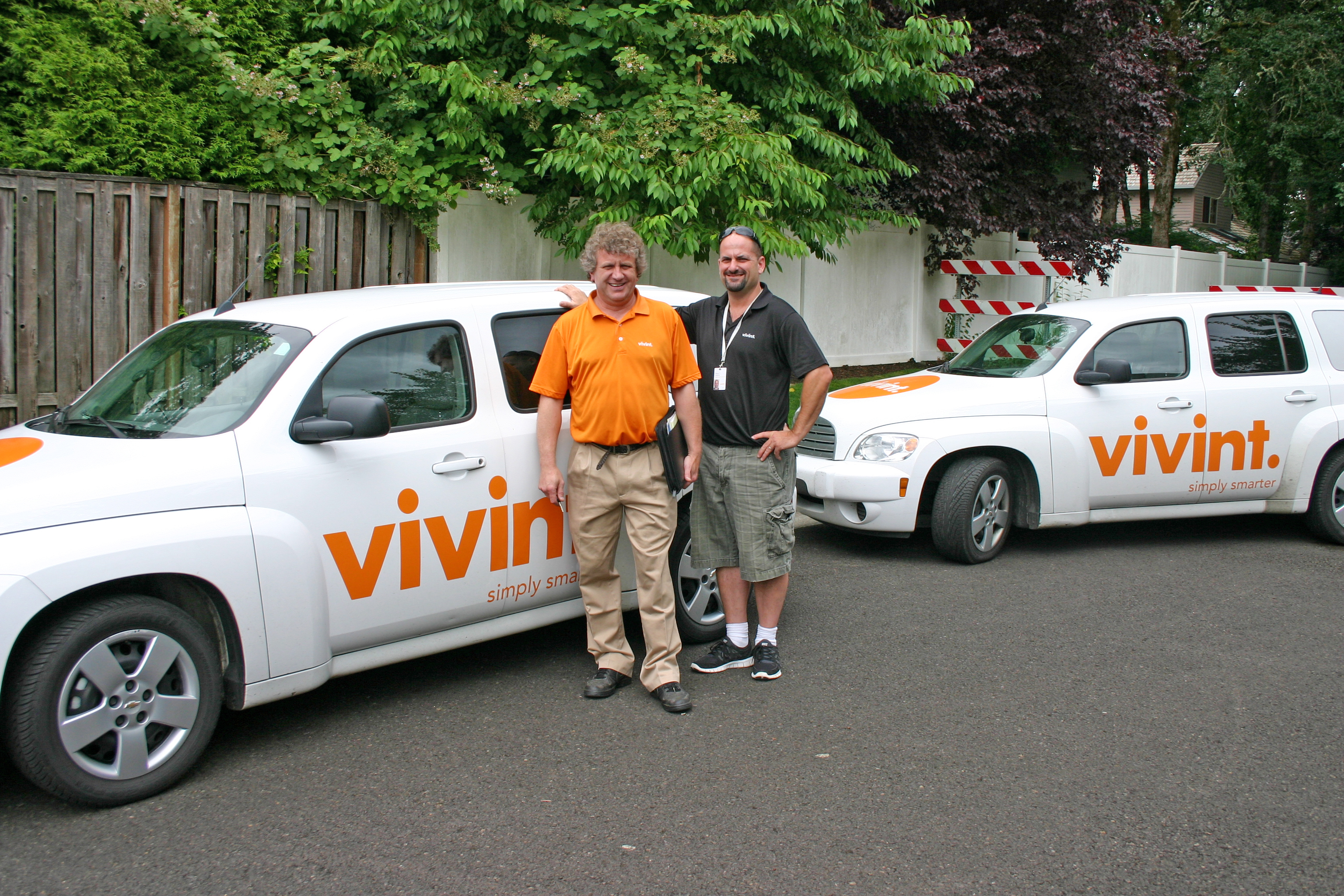In Pictures: Getting Connected To Next-Gen Home Security
Security Online
Vivint’s Web portal is the one-stop location from which to monitor and manage most aspects of any installation. The Security tab, shown here, offers the summary view, detailing the presence of an active alarm, arming state, and the status of all sensors. In other views within this tab, you can monitor all sensors and change their names, create new users and manage their access rights, and establish arming reminders in case the system isn’t armed by an expected time.
Get emPowered
For those who purchase the HVAC panel for their Go!Controller system, Vivint claims that its Energy Star-recommended HVAC templates save an average of $24 per month, though we don't yet have enough data to confirm. There are four such templates. We opted for the second-most aggressive, then tweaked it to be more in line with our family's schedule. The emPower tab also provides control over all connected lights and locks, as well as rule management for triggered events and automation schedules (such as the previously-described vacation lighting).
Power In Your Pocket
Our favorite aspect of Vivint’s system is its mobile apps for Android, iPhone/iPod touch, and BlackBerry. Actually, any Web-enabled phone will work, but the native apps are far more convenient. Live video looks decent over a 3G connection, although you can only view one camera at a time. On the iPhone, you can view saved video clips, but this feature isn’t currently present on the Android app. Unfortunately, Vivint omits from both its mobile and Web interfaces the ability to start recording manually.
More Mobile Screens
Here’s a closer look at three screens within the iPhoneapp. The ability to set a dimmer switch amount within the lighting module is agreat perk. The lock screen is self-explanatory. Vivint’s thermostat controlsfrom the mobile UI are surprisingly strong, allowing you either to select aschedule or perform a manual override until the next scheduled setting kicksin. In general, we find that it takes about five seconds for a phone commandexecute, although HVAC commands are slower.
HVAC Panel Installation
For us, the HVAC panel was the last bit of hardware to beinstalled. As the old panel was removed, our technicians used label stickers tomake moving to the new panel mistake-proof. This bit of wiring aside, there waslittle more to installing the HVAC panel than there was to installing any ofthe sensors. The Go!Control panel handles most of the programming intelligence,and yes—the panel can be remotely flashed with newer firmware.
Wired For Savings
Truth be told, we found that the hardest part of using the new HVAC system was breaking old habits of manually setting temperatures on its touch-sensitive screen. For several weeks, we didn’t take the time to fully configure the online heating and cooling templates, and we paid for it on our energy bills. Once we got an aggressive automated schedule in place, we started saving energy compared to prior year levels.
Saying Goodbye
Vivint installed over $4000 of gear for us. Is the hardware worth the initial charge and ongoing service subscription? That depends. Most home security outfits still install CCTV systems without remote viewing capabilities, heating/cooling system integration, mobile control, and all the rest. As with any type of security, the more you have to lose, the better your protection technology should be. Vivint is state-of-the-art, and now the company is gearing up to integrate solar energy in its offerings. Yes, the margin Vivint charges on its hardware is high. But in many weeks of use, it’s all performed flawlessly. Vivint alarm response has been lightning quick, the company’s tech support is outstanding, and we even like how the Go!Control panel puts a next-day weather forecast in its interface...not to mention those tornado warnings. Perhaps that’s another good way to assess the value in this equipment: go ask Edith Lawellin in Joplin, Missouri if she thinks it’s worth it.
Get Tom's Hardware's best news and in-depth reviews, straight to your inbox.
-
QEFX richboyliangI wonder how necessary a security system is in an affluent neighborhoodReply
Burglar alarm ... probably not necessary. Well other than for specific high cost items and any home safes.
Weather (as in this instance), Water (as in water tank failed), Gas (as in gas line failed), Fire (many systems have integrated fire detection), CO Detection, Nanny/Family Cam (to make sure the kids aren't having a party while your out) and maybe Line Disruption Warning (phone/power not working - network/wifi ?) ... could be useful. -
Pyree I learn that there is a company called Vivint that sell and install security system after reading this article.Reply -
cangelini richboyliangI wonder how necessary a security system is in an affluent neighborhoodReply
Frankly, very. I have friends who live on golf courses in a neighborhood patrolled by two security trucks who've been broken into. The fact that it's affluent paints an even larger target on it. The challenge is overcoming the security, so you end up with a more skilled thief. -
ikyung richboyliangI wonder how necessary a security system is in an affluent neighborhoodThats where the money is at. Who is going to rob the ghettos?Reply -
CaedenV where there is valuable stuff, crooks will try to find a way to get at said stuff. The #1 best protection anyone can have is window blinds to keep people from seeing the more valuable stuff. Most thieves know exactly what they are going for before they break in because they know they have at least 5 minutes before anyone will be there to stop them no matter how good the security system is. Sure, you want it to be a pain in the ass for a thief to get into your house (it is soooo easy to take a whole window out, completely bypassing most magnetic alarms mounted to the housing of the window instead of the window and the sil/wall), but if they know what they want and have a plan there is no alarm on earth that is going to keep them away.Reply
The #2 best protection anyone can have is good relationships with their neighbors who know you, know what your friends look like, and are not crooks themselves.
#3, if someone really wants your stuff, they will get your stuff. Prevention is largely based on intimidation. The real trick is catching someone's face and/or actions on camera. Not having night vision on a $4000 system would have been a dealbreaker for me. That is just really dumb. Your average $20 piece of crap pinhole camera has night vision, there is no excuse to not have it in a $150 camera.
#4 where prevention fails, recovery is most important. Everything of value that you own of value should have a marking on it that you can prove to be yours. Back in high school and college it was as simple as putting some nail polish in an obscure place that you document, but nobody else knows about. Then when your bike/laptop/whatever is stolen you can show the cops a picture and easily identify the item as yours. As you get older there are more advanced ways of doing this, but the general rule applies. I recovered my bike 3 times back in college with this method. Thankfully that was all that was ever stolen.
Anywho, I think my point is that for the average person living in an apartment or 3 bedroom house in a suburb, the bulk of your security money should be in documentation and recovery, with just a little bit invested in prevention and active protection because the monthly premium that comes with that $4000 system will likely add up to more than would ever be stolen in the first place for most of us. -
alidan CaedenVwhere there is valuable stuff, crooks will try to find a way to get at said stuff. The #1 best protection anyone can have is window blinds to keep people from seeing the more valuable stuff. Most thieves know exactly what they are going for before they break in because they know they have at least 5 minutes before anyone will be there to stop them no matter how good the security system is. Sure, you want it to be a pain in the ass for a thief to get into your house (it is soooo easy to take a whole window out, completely bypassing most magnetic alarms mounted to the housing of the window instead of the window and the sil/wall), but if they know what they want and have a plan there is no alarm on earth that is going to keep them away.The #2 best protection anyone can have is good relationships with their neighbors who know you, know what your friends look like, and are not crooks themselves.#3, if someone really wants your stuff, they will get your stuff. Prevention is largely based on intimidation. The real trick is catching someone's face and/or actions on camera. Not having night vision on a $4000 system would have been a dealbreaker for me. That is just really dumb. Your average $20 piece of crap pinhole camera has night vision, there is no excuse to not have it in a $150 camera.#4 where prevention fails, recovery is most important. Everything of value that you own of value should have a marking on it that you can prove to be yours. Back in high school and college it was as simple as putting some nail polish in an obscure place that you document, but nobody else knows about. Then when your bike/laptop/whatever is stolen you can show the cops a picture and easily identify the item as yours. As you get older there are more advanced ways of doing this, but the general rule applies. I recovered my bike 3 times back in college with this method. Thankfully that was all that was ever stolen.Anywho, I think my point is that for the average person living in an apartment or 3 bedroom house in a suburb, the bulk of your security money should be in documentation and recovery, with just a little bit invested in prevention and active protection because the monthly premium that comes with that $4000 system will likely add up to more than would ever be stolen in the first place for most of us.Reply
#1 document everything
most people are lazy as hell in this regard, everything of mine of reasonable value that wont degrade (as in lose value fast or naturally be used up) i have the serial numbers, and photos, and a safty deposit box with a usb duplicate.
#2 insure everything for more than its worth
make damn sure everything you own is documented and insured for more than its worth. my speakers arent great, they cost me about 250$, but if they were stolen, it would cost me 1000$ to get an exact replacement.
#3 have a list of small items.
i'm in the process of finding software to record the bar codes of all my games, dvds, and other valuable coded items, dvds and games are easy to get rid of because no one really thinks twice that this may be stolen
#4 prepare for the worst
no mater the lock, no matter the security system, it can be broken in seconds by someone skilled.
no current lock that i know of is bump proof, most being broken into in less than 5 seconds.
#5 who wants your crap
the average theif who is an opertunist, or the master thief who spent time planing? a loud alarm may scare off the opertunist, but the master knows what they want, and will get it. do you want them gone, or do you want them to stay a while thinking they beat the alarm. silent alarm, or loud noise... its a tough choice.
#6 the one and only camera you need
a camera on the door, that activates the moment it sees more than 15% movement, and records sound, with a hq mic. this way you get the face, and the voice of who went in your home -
mortsmi7 alidan#4 prepare for the worstReply
no matter the lock, no matter the security system, it can be broken in seconds by someone skilled. no current lock that i know of is bump proof, most being broken into in less than 5 seconds.You didn't visit the link on bump keying. -
wiyosaya In my opinion, marketing departments at security firms sell their product by promoting insecurity. Unless you are in a notoriously high crime area, odds are that you will never need the "service" that these devices provide. The benefit from these is quicker response should anything happen.Reply
There are means to make your home more secure that the monthly fee for these would pay for in no time:
1. Buy steel doors as they are very difficult to knock down.
2. Ensure that those doors have deadbolts.
3. Ensure you have smoke and CO2 detectors.
Over and above those three things, a security system only buys you faster response time - IF - you have the system armed. If you disarm the system while you are home, then even if someone breaks in or you have a fire, if I am not mistaken, then you lose the advantage of the response time.
Making money on these systems means making potential customers feel insecure, or exploiting feelings of insecurity that already exist. They are, essentially, "insurance policies," where the provider of the insurance bets that you will never need the services.
In my opinion, the question becomes what is it worth to you? Is it worth paying for services that may never be needed for that "sense" of security even if the sense garnered from these systems is false?
